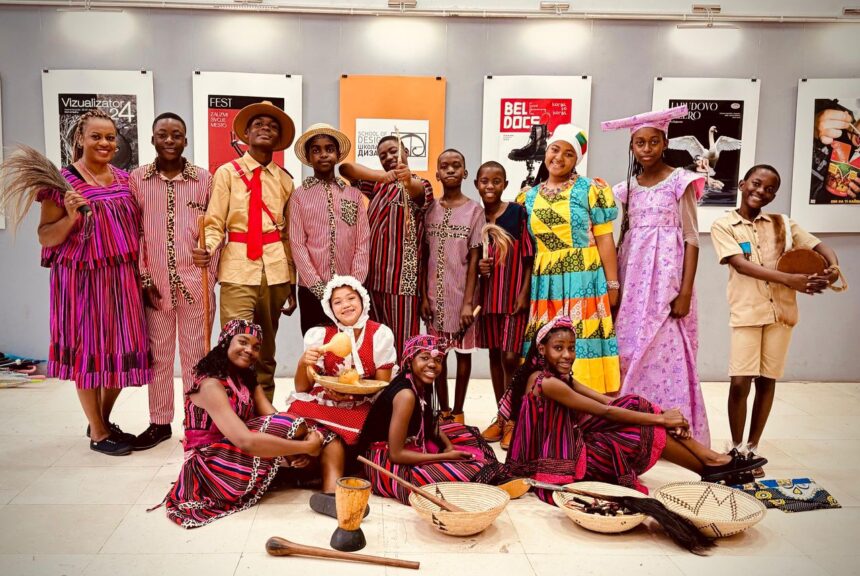Rudolf Gaiseb
Delta Primary School learners showcased Namibia’s cultural heritage with spontaneous dances at the 55th International Gathering of Children of Europe, known as “Joy of Europe”.
The gathering took place recently in Belgrade, Serbia.
The Twaya Siki group, comprising students from grades 4, 6 and 7, performed a dance titled “Waka Waka” on stage, collectively known as Rhythm of the Namibian Heart.
Each participant donned traditional attire, representing the rich cultural diversity of Namibia. This performance was followed by additional traditional dances.
“We are concerned about the potential decline of our cultures, which is why we aimed to highlight our various traditions, and instil a sense of pride in our children regarding their heritage. We observed that some students were unfamiliar with their traditional dances, prompting us to practice diligently. Our children excelled in the arts, leading to the invitation to represent our country at the convention,” stated Celma Richter, the school principal.
She emphasised that the students returned with a renewed sense of pride in their cultures and languages. “Most importantly, they have learned their traditional dances, and understand the significance of sharing this knowledge with their peers. This exposure has been beneficial for them, allowing them to learn, connect with new friends, and expand their understanding,” she said. The young cultural advocates, along with their teachers, were thrilled to participate in the event for the first time as honoured guests.
The festival’s objective was to unite children from various parts of Europe through song and dance, showcasing their unique cultures and customs, as well as participating in an international drawing and painting competition.
The objective was to showcase cultures to more than 14 to 16 countries participating in the event. The intention was to highlight Namibia’s diverse cultural groups and share heritage with a global audience, stated organiser and educator Draga Boskovic.
In addition to performing on local television in Serbia, she elaborated on how first-time visitors had the chance to explore the country during their journey.
“We had an enjoyable experience, filled with various activities. Our learners visited the Nikola Tesla Museum, as well as the cities of Novi Sad and Niš. In Niš, we explored numerous cultural and historical sites. We also travelled on a bullet train to Novi Sad, marking our first experience with such a mode of transport,” she said.
She added: “We donned our traditional attire while walking through the cities, and we were frequently approached by locals who enquired about our origins, and the significance of our clothing. We had the opportunity to explain our costumes, as it was the first time many had seen the vibrant colours and unique garments from Namibia. Our children took great pride in sharing details about their attire, and we received compliments at every turn. It was a rewarding programme for our learners.
The group has received an invitation from the mayor of Niš, and plans to embark on another trip next year.
Joy of Europe is a well-established European dance festival that occurs annually in Belgrade, Serbia, featuring 30 European nations that present their cultures through dance and music. -rrgaiseb@gmail.com



